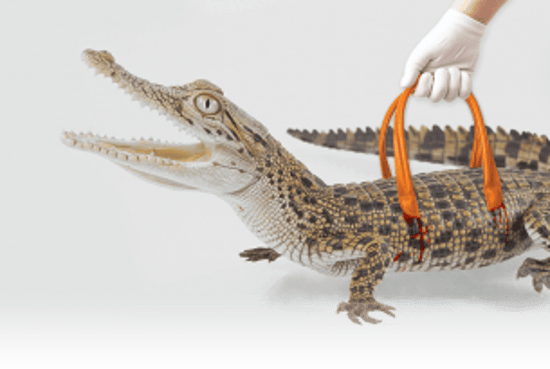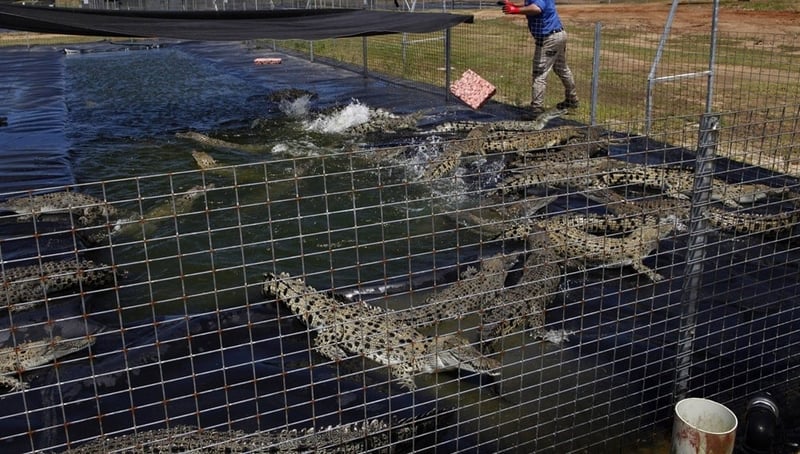
New wildlife farming report reveals more crocodiles on farms than in the wild in Australia
News
Our latest ‘Bred for Profit’ report reveals an estimated 5.5 billion wild animals including crocodiles, lions, elephants and bears are suffering on profit-driven wildlife farms globally.
Image credit: Dean Sewell / World Animal Protection
Our Bred for Profit: The Truth About Global Wildlife Farming report exposes the vast scale of the exploitative wildlife farming industry that breeds billions of wild animals for commercial gain, often under the pretext of conservation.
Captive-bred animals like crocodiles, elephants, bears, and lions are then cruelly exploited for entertainment or tourist attractions, non-essential luxury fashion items, traditional medicine, canned hunting or to be traded as pets.
These so-called farms expose these living, feeling beings to disease, malnourishment, trauma, injuries, and even cannibalism.
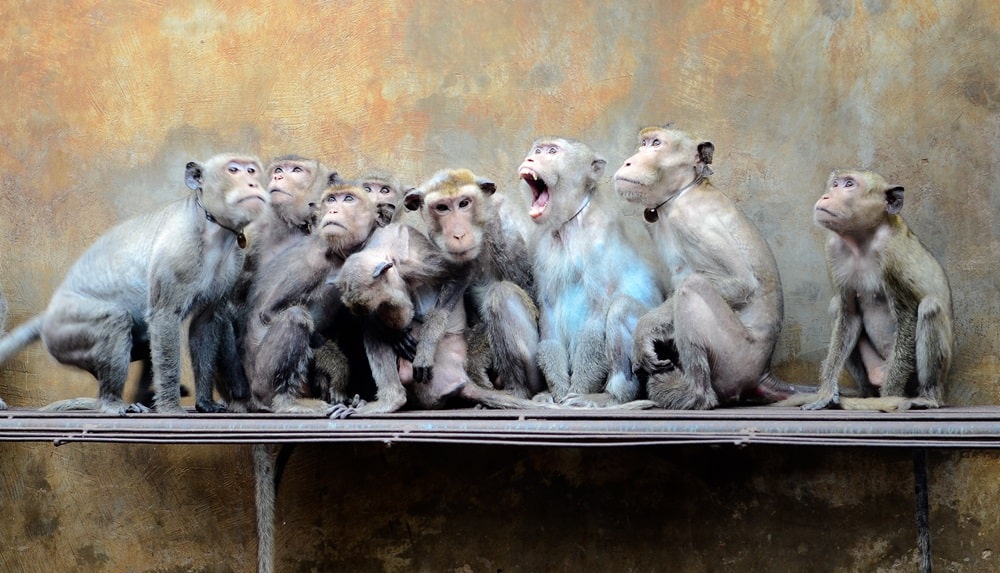 Image credit: Jan Schmidt-Burbach
Image credit: Jan Schmidt-Burbach
Suzanne Milthorpe, Head of Campaigns at World Animal Protection, said:
The global wildlife farming industry operates in a shadow of secrecy, lacking transparency and adequate oversight. This multi-billion-dollar industry treats sentient animals as commodities, subjecting them to unimaginable suffering on a daily basis.
Wild animals endure malnourishment, disease, stress-induced behaviours, and even cannibalism in cramped and unhygienic conditions. Shockingly, some captive wildlife populations now exceed those in the wild, this should be a wake-up call to the global community on the scale of this issue.
More crocodiles on cruel farms than in the wild
Researchers were shocked to find that captive wildlife populations are now larger than those living free, such as Australia’s native saltwater crocodiles, with an estimated 135,000 languishing in farms in the Northern Territory, compared to only about 100,000 in the wild.
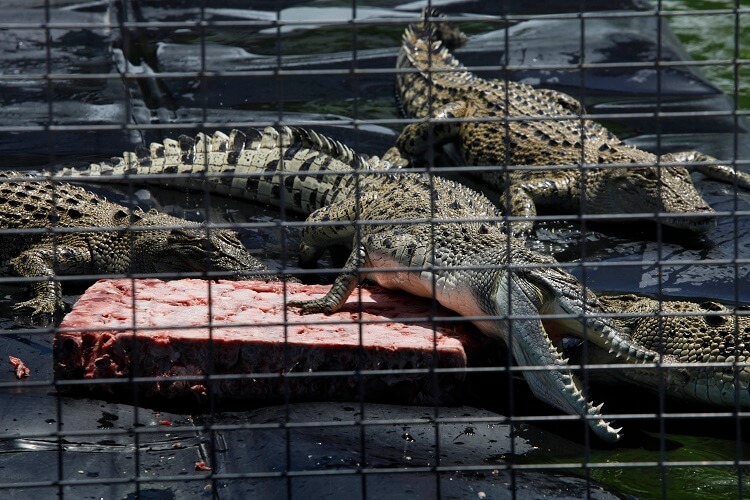 Image credit: Dean Sewell / World Animal Protection
Image credit: Dean Sewell / World Animal Protection
Despite having a natural lifespan of 70+ years, the industry brutally slaughters crocodiles at just two or three years old and uses up to four of these sentient beings to make a single Hermès handbag. Moreover, their farming operations in Australia rely on a 15-year-old Code of Practice that contains decades-old scientific information.
But thanks to thousands of animal lovers like you who called on the Australian Government for years, a review of the Code finally began last year. With your support, we urged decision-makers to recognise crocodiles as sentient animals that can experience positive and negative emotional states.
Milthorpe continued:
In Australia, 135,000 native saltwater crocodiles are suffering in farms in the Northern Territory, exceeding their estimated population in the wild. Similarly, thousands of elephants and big cats are bred into captivity for tourism around the world, contributing to a cycle of cruelty.
Even in supposedly well-managed facilities, profit often takes precedence over animal welfare. It is disgraceful for wild animals to endure such misery for industries like the pet trade, trophy hunting, tourism, traditional medicine, or in Australia’s case, high-end handbags.
The report also found:
- High numbers of animals living in cramped, unhygienic conditions could put their caretakers and the public at risk of zoonotic diseases – potentially to pandemic proportions.
- In China, a staggering 20,000 bears are kept on dozens of bile farms for the US$1 billion bear bile industry.
- In Thailand, there are over 3,000 elephants across 246 venues for tourism, generating up to US$770 million every year. Elephant venues in the country increased by 134% between 2010 and 2020.
- In South Africa, there are approximately 8,000 lions and other big cats across 366 known facilities and are being used for tourist entertainment, trophy hunting and traditional medicine in the U$43 million big cat farming industry.
- Wildlife farming could enable the laundering of wild-caught animals instead of ‘reducing the pressure on wild populations’ as some conservationists claim.
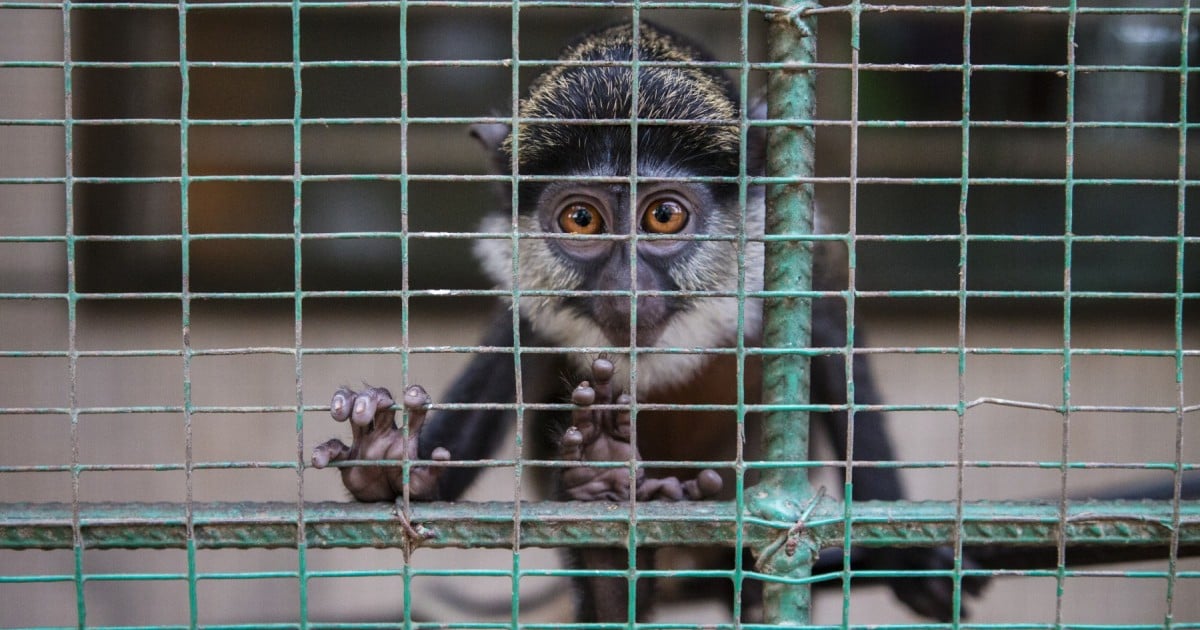
Together, we can make this the last generation of wildlife to be cruelly exploited for commercial gain.
Stop crocodile slaughter
Call on the Minister for Environment and Water, Murray Watt, to do the right thing for Australian crocodile welfare.

